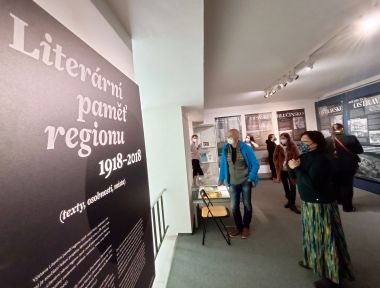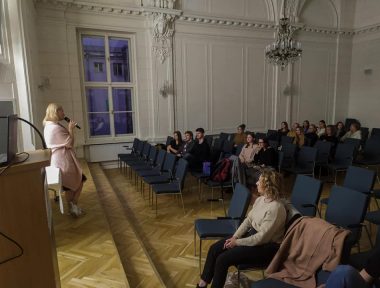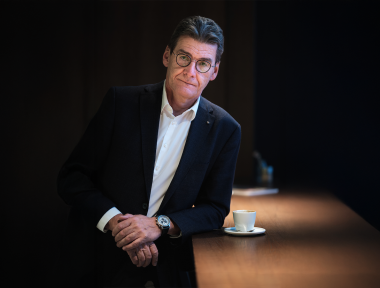Since 1 May, the Faculty of Social Studies, University of Ostrava has been led by Prof. Soňa Kalenda Vávrová, who succeeded Assoc. Prof. Alice Gojová after two terms in office. “My main priority is to continue developing the Ostrava School of Social Work. Our Faculty is currently regarded as one of the most important and high-quality institutions in the Czech Republic, both in terms of education and research,” she states in an interview.
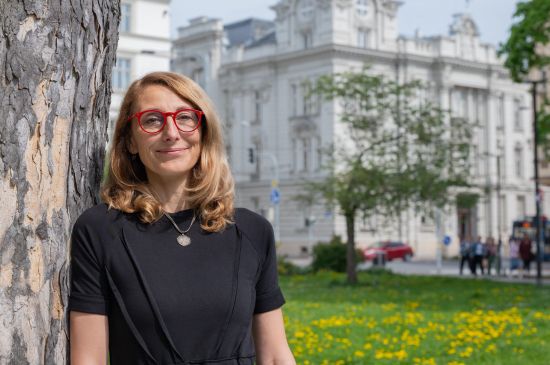
This article is available in Czech: „Do nové pozice nastupuji s respektem a pocitem zodpovědnosti,“ říká nová děkanka FSS Soňa Kalenda Vávrová
Také čtěte
Prof. Vávrová, congratulations on your unanimous election as Dean of the Faculty of Social Studies, University of Ostrava. What does the election to this position mean to you, and how do you feel about this new role?
Professionally, for me this brings a tremendous responsibility, but also represents an expression of trust by my colleagues, which I deeply appreciate and find both gratifying and obliging. I’m truly honoured to have been nominated as the sole candidate and subsequently elected unanimously.
I’ve been with the Faculty for over ten years. I completed my PhD studies here, as well as my habilitation and the process leading to my professorship, so I am deeply connected to this environment. Thanks to my experience as Vice-Dean for Research and Development, I have a clear understanding of what the role of Dean entails. I enter this new position with respect and a sense of responsibility toward my colleagues and students.
And when you look at your election from a personal perspective?
Before I agreed to run as a candidate, I carefully considered everything this role involves and the impact it would have on my personal life. I already know it will bring one major change — I am moving to Ostrava, as I want to be closer to the Faculty and able to more promptly respond to urgent matters.
My goal is to continue the existing good practices and established direction, while also strengthening internationalisation and raising the Faculty’s international profile.
What are your vision and priorities as you assume the role of Dean?
During my candidacy, I presented my vision in detail, and we had extensive discussions about it with my colleagues. If I were to summarize, my main priority is to continue developing the Ostrava School of Social Work. Our Faculty is currently regarded as one of the most important and prestigious institutions in the Czech Republic—both in terms of education and in science and research.
My goal is to continue the existing good practices and established direction, while also strengthening internationalisation and raising the Faculty’s profile internationally. We are currently preparing a Master’s degree programme in Social Work taught entirely in English, and I would also like to focus on supporting and developing the doctoral programme in English, which is already attracting international students. Many of our graduates then work at universities abroad, where they help to further promote the good name of our Faculty.
You are taking over the leadership from Assoc. Prof. Alice Gojová, who has significantly contributed to the current standing of the Faculty. How important for you is continuity in the Faculty’s leadership?
I greatly appreciate the work that Dean Gojová accomplished during her tenure, and I look forward to building on her leadership. As well, I highly value the way the leadership transition is taking place. It’s a smooth, open, and collaborative process, where we fluently share our visions and experiences.
I’m grateful that Dean Gojová and I share the same vision for the future of the Faculty. We have similar goals and ideas about the direction we’re headed, which I see as extremely positive. I also see this as proof of the well-established organisational culture at our Faculty, supporting open, respectful, and constructive communication.
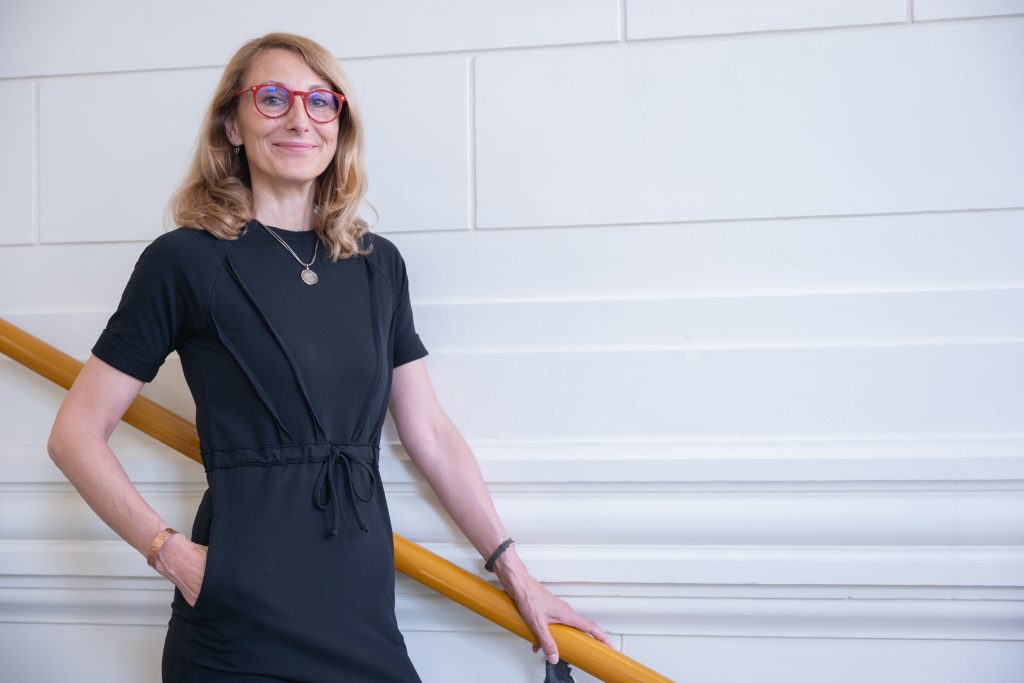 Where do you see room for the Faculty’s growth?
Where do you see room for the Faculty’s growth?
One of the areas where we still see potential for improvement is international projects. Although we have been working on them for a long time, there is still room to grow. We are currently preparing a new submission of the Marie Skłodowska-Curie Doctoral Network project, which focuses on supporting PhD students. Our previous proposal came very close to being approved.
Simultaneously, we are negotiating with partners from Spain about joining a project focused on working with vulnerable children—an area that closely aligns with our expertise. I believe this is precisely where the Faculty can significantly strengthen its international presence. We’ve been intensely focusing on international project development for several years now, and I believe that we’ll soon start seeing concrete results.
You mentioned international and PhD students. Are there any planned changes that would also affect undergraduate students?
The change in leadership will not have a direct impact on students’ daily lives, but we are planning some innovations for the future. One of them involves the final state examinations and adjusting the format of Bachelor’s theses. Personally, I believe the current model is somewhat outdated. We are considering a format that resembles a professional portfolio — a thesis more closely linked to practice and the development of specific competencies.
The goal is for student output to better reflect the demands of current professional practice and the challenges posed by, for example, the development of artificial intelligence. We want to ensure that our study programmes are as relevant as possible to professional careers and that they address the current needs of society.
I also see this as proof of the well-established organisational culture at our Faculty, supporting open, respectful, and constructive communication.
How do you perceive your Faculty’s connection to the Moravian-Silesian region?
The Faculty of Social Studies has strong regional ties – we have long-term cooperation with the Moravian-Silesian Region, the city of Ostrava, the Technical University of Ostrava, and numerous non-profit organisations within the region and beyond. The findings of research projects such as STENEO and REFRESH, in which our Faculty is involved, also have a direct impact on the development of the region. Many of our colleagues also participate in smaller contract research projects for various city districts.
The cooperation works well, is mutually beneficial, and we definitely plan to continue it. Besides having a regional focus, we are also part of a broader scientific community, and of course the goal is for our output to be at a high, international level.
In 2023, you received your professorship. Can this milestone be compared in any way to your appointment as Dean?
Personally, I never had a desire to have the title of professor just “for myself”. A title doesn’t change who you are — you are not different whether you hold a Ph.D., associate professorship, or full professorship. I mainly saw it as a commitment to our Faculty, especially in the context of the doctoral study programme, in which I was involved as a co-supervisor. I must admit that I view receiving the title as a collective achievement. I had a lot of support from my colleagues, including those from Slovakia, which was very encouraging.
However, comparing the professorship to the role of dean isn’t quite possible. The latter brings a much broader commitment, where you’re accountable for the entire Faculty and how it functions, how processes are set up, and the organisational culture. While the professorship is primarily an academic commitment, the leadership as a dean is a human commitment. For me personally, it is therefore a responsibility I feel even more deeply.
While the professorship is primarily an academic commitment, the deanship is a human commitment. For me personally, it is therefore a responsibility I feel even more deeply.
Let’s leave the university environment for the last question. What brings you joy and energy outside of academia?
Right now, my two grandchildren give me the greatest joy. You experience everything with a greater perspective as you get older, and I really enjoy the time I spend with them. It’s great to watch their carefree nature and to be part of continuing the family line — this time from a calmer role than that of a parent.
I also love to travel, explore new countries and people, and I have a passion for film, theatre, and literature — not the academic kind, but the kind that truly helps me relax (laughs). And what else? Pilgrimage journeys bring me great joy. My friend and I walk a part of a pilgrimage route every year. We stay in albergues, meet pilgrims of all ages… Each and every trip enriches us in some way.


 7 min.
7 min. 
